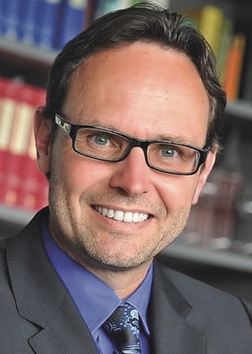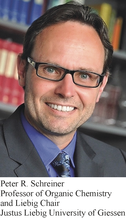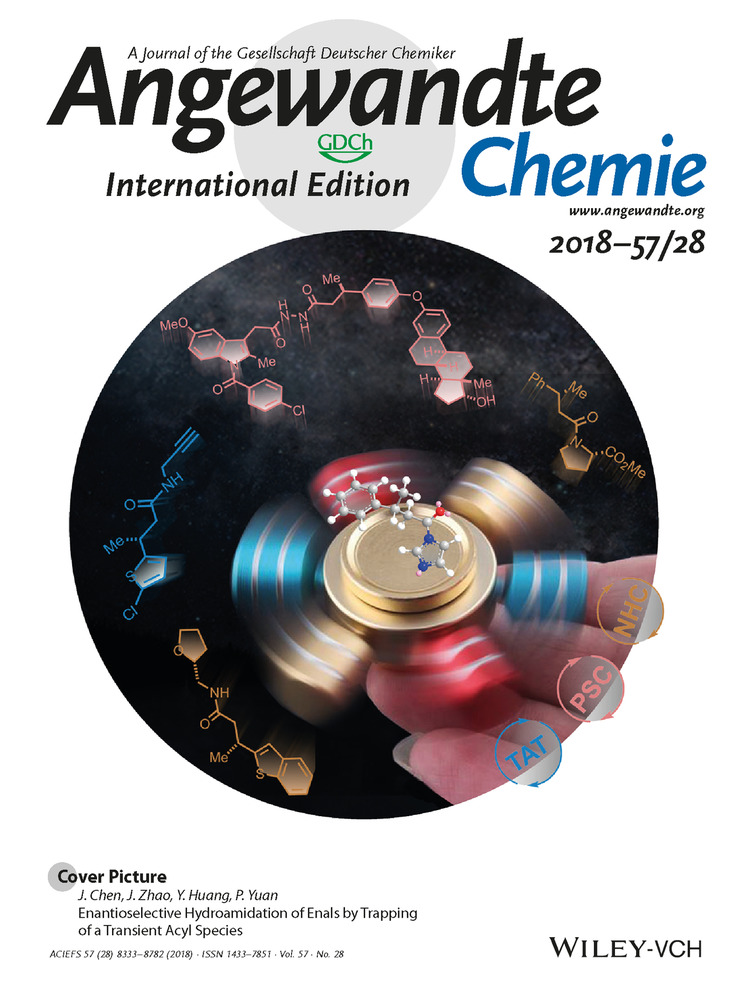Thoughts on Chemistry and Scientific Truth in Post-Factual Times†
This is the amended text of a speech given on the occasion of the Adolf von Baeyer Award ceremony on September 13, 2017 in Berlin.
Graphical Abstract
“… The value and meaning of scientific truth has not been overcome by postmodernism or post-factual tendencies. Just because politics is mostly a representation of opinions, this does not imply that truth has become irrelevant. Quite the opposite, the value of truth is growing in turbulent times and for scientists it constitutes the currency of credibility and accountability …” Read more in the Guest Editorial by Peter R. Schreiner.
Chemistry
I am not worried about chemistry as a scientific discipline, even though some think it needs to be reinvented,1 because chemistry is an integral part of our well-being and is the enabling science when it comes to solving today's challenges (including energy, food, health, pollution, and water). Moreover, chemistry as the discipline that seeks to understand and alter the structure of matter by definition continuously adapts to the challenges it faces. At the same time, it would be highly desirable if current discussions, for example, about the fate of the diesel engine or electromobility would not only include managers of car companies, engineers, and politicians, but also chemists because the current obstacles are predominantly in basic science. The visibility and societal recognition of chemistry is not at the level that reflects its actual importance in addressing these and many other issues.
Ideals
Chemistry as a program of study—and probably many other university teaching programs—is something to worry about because more than many other disciplines it suffers from the “bachelorization” (the so-called “Bologna reform” in Europe) that places theoretical knowledge above practical training, regurgitating unconnected facts above logical reasoning, and student uniformity above shaping critically thinking individuals. If one considers chemistry as a sophisticated craftsmanship, then online courses and YouTube-style video teaching really don't do the job. Would you send your children to the best possible university with top-caliber researchers only to watch them on a video? The de-emphasis of practical laboratory training takes away the magic and inspiration of having made a (new) molecule or recorded its spectrum with one's own hands. Being able to address the practical and theoretical challenges in the process of discovery constitutes the value of chemistry for society: [Chemistry] “…should teach students the skills necessary to attack problems that do not even exist as problems when the students are being taught.” [2] At least in Germany, the Bologna reform for some feels as if the universities have partly surrendered their identities in the teaching sector and have departed from Humboldt's humanistic ideals. Perhaps I am exaggerating but the current bulimic growth of the number of study programs with colorful names such as “Vocational-Technical Education—Body Care”2 where our colleagues are compelled to teach the mandatory science courses, can hardly be viewed as a desirable development. Some may have already read my appraisal against the BSc/MSc program accreditation where I reminded ourselves to be more active and courageous in shaping our chemistry curricula,3 a concern that goes back to von Baeyer, who was one of the major contributors in the restructuring of the chemical curriculum in the period 1870–1900. Back then, the chemical industry called for uniform chemistry study programs that cater closely to employer's demands; this is not dissimilar to the current program accreditation. Adolf von Baeyer, Wilhelm Ostwald, and August W. von Hofmann rather advocated in-house quality monitoring (known today as system accreditation) and the value of non-utilitarian research. The latter ideal eventually made it into the German constitution (and some European constitutions) that states in Article 5(3): “Arts and sciences, research and teaching shall be free”. The triumvirate firmly believed that science can only flourish if it is independent from external economic and political influences. The two major “products” (a misnomer) of academia cannot be sold: knowledge and highly qualified, critically thinking individuals who are able to keep developing a society through empirically based scientific approaches.
Science and Truth
My biggest worry is science itself. Science is seeking for truth; this needs no justification and has no obvious purpose other than acquiring knowledge. Conveying the ideals of searching for truth in the current so-called post-factual times has become more difficult. The term “post-factual” itself is intentionally misleading and often used by politicians to imply knowledge more valuable than that derived from facts and sober analysis. Rather, it is the attempt to make decisions without facts, primarily addressing the emotions of the receivers. This naïve realism is poison for science because there is no truth without facts. As Volker Gerhardt (Humboldt-Universität zu Berlin) put it (translated freely): “The problem with the truth is that we underestimate its moral implication and overestimate its metaphysical rung” and that “the modernistic denial of truth can only be a consequence of the disappointment that science has not yet solved all problems already.” [4] Considering the current worldwide conflicts, triggered by verbal agitators with unjustified self-empowerment who attempt to prescribe history with “fake news” and “alternative facts” (which we all know cannot exist), this time is nothing less than the time to defend the value of truth. The March for Science in April 2017 was supposed to be a wake-up call, but a one-time event is certainly not going to have a lasting impact. Although many of us are uncomfortable in the political arena, every one of us should stand up (and be counted) for science and truth. Many little steps will go a long way.
Publishing
Proper presentation of scientific results as a meticulous documentation of the efforts uncovering scientific truths very much concerns publishing as well. Detailed and truthful descriptions of complex scientific findings can not and must not be reduced to, for example, “A brief teaser statement highlighting main results of the paper […], without jargon or abbreviations […in…] under 125 characters…” 5 (this citation has 128 characters!). Similarly, the limited content of a twitter message (with 280 characters for that matter) may be sufficient for populistic nudging of public opinion but it can hardly convey the complexity of science today. These are symptoms of the marginalization of the scientific effort that goes into a publication on one hand and the hyperbolization of the results on the other. Apart from all ethical and moral implications, the authors themselves often are guilty of the latter activity by using inappropriate attributes to describe their scientific findings. The notion of a “smart molecule” is simply not a truthful description of a scientific finding but rather an advertising scam to attract readership.
The value and meaning of scientific truth has not been overcome by postmodernism or post-factual tendencies. Just because politics is mostly a representation of opinions, this does not imply that truth has become irrelevant. Quite the opposite, the value of truth is growing in turbulent times and for scientists it constitutes the currency of credibility and accountability. Scientific truth is the inner corrective upon which academic freedom is based. Let's make sure its stays that way.






